Australia is more united than Britain. But there are bitter lessons from England’s riots

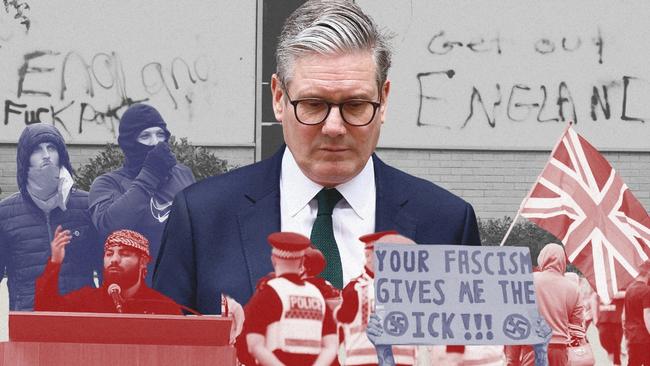
Then a week or so later there was a videoed fracas at Manchester airport where ethnically South Asian youths on a flight from Pakistan engaged in fist fights with the police. And, finally, there was the heart-rending murder of three little children by a British-born son of Rwandan refugees.
There’s no doubt that some white supremacist activists capitalised on these events and instigated the riots. British Prime Minister Keir Starmer and most of the media have been quick to condemn the riots as the work of the so-called far right. Certainly the actual acts of violence have been committed by thugs and the government is right not only to condemn the violence but also to prosecute those responsible
But this eruption has not happened without a broad context. All three events involved migrants or their immediate descendants. And immigration and multiculturalism, as I’ve written before, have become a third rail issue in Britain and Europe.
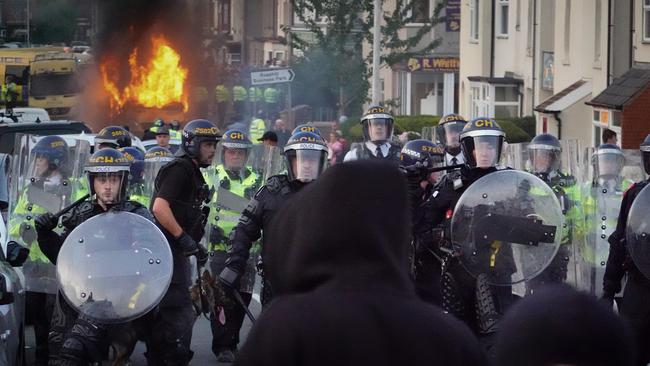
The numbers coming to Britain have been huge; last year net migration was just short of 700,000 and the year before more than that.
Then there are the flotillas of small boats crossing the English Channel from France with predominantly young men from developing countries who prefer Britain to France. Last year about 40,000 people entered Britain that way. This year the numbers could be higher. Not surprisingly, the public is angry about both the sheer numbers of migrants and illegal immigration.
And there’s the thorny issue of multiculturalism. It sounds nice, but when migrants form enclaves as they have in Britain and the people in those enclaves make no effort to engage with and interact with the mainstream of British society it causes dysfunction and resentment. Whole towns and parts of major cities have become unrecognisable to the traditional inhabitants. There are Kashmiri suburbs, Pakistani towns, Bengali council areas and Polish villages. They each have their own religions, family values, educational priorities and attitudes to international affairs. No serious effort has been made by British governments to assert common values that bind the country together.
Multiculturalism, which was originally a synonym for multiracialism, has become an ideology that is turning the country from a people with a common history and common yet evolving values into a huge hotel. Unless there’s a sharp change in policy, the only thing that will bind multicultural Britain together is geography: people in Britain will all live on the same island. And that’s it.
Respected polling organisation YouGov already has released polling on the riots and the grievances of the rioters. Not surprisingly, the public condemns the acts of violence. Only 8 per cent of the public have sympathy for the acts of violence. But an incredible 58 per cent of the public sympathise with the people who peacefully participated in the protests.
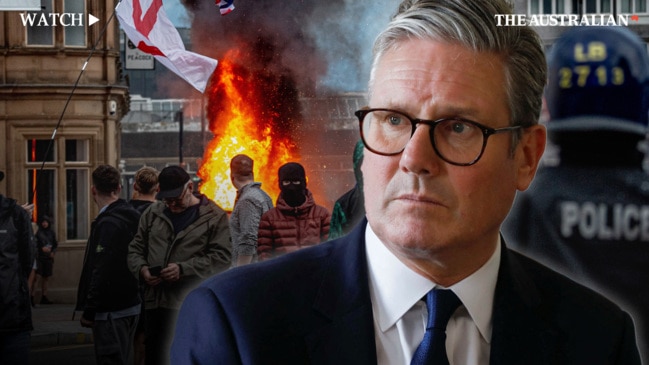
Something about these protests has struck a chord with the punters. It’s not that voters specifically blame the immigrants for the protests, they blame governments for pursuing mass migration programs and failing to integrate migrants into modern Britain.
Many Britons have been reluctant to speak out on these issues. They live in fear that the self-styled “progressive” left will condemn them as racists, fascists and Nazis. For years they and a compliant media have stifled any criticism of immigration and multiculturalism. As you can see if you follow X, the progressive modus operandi is not to debate issues but to pour invective on their victims confident it will shut them up. In Britain it has worked.
What is more, the public is suspicious that the white majority – that’s more than 80 per cent of the country – is being subjected to different standards from ethnic and other minorities. There’s an argument that the police turned a blind eye to acts of violence during the Black Lives Matter protests and allowed pro-Hamas supporters to act violently, yet when white people protest they vigorously enforce the law.
This allegation of two-tier policing may not necessarily be fair. After all, the police only enforce the laws that parliament makes and one of those laws – the Equality Act – imposes the concept of “protected characteristics” and one of the protected characteristics is race. In practice, the police often have been cautious to avoid the all-too-easy charge of racism.
The riots will quickly die down. But what won’t die down is the sense from one end of Britain to the other that both Labour and the Conservatives are set on changing the whole social and cultural character of the country.
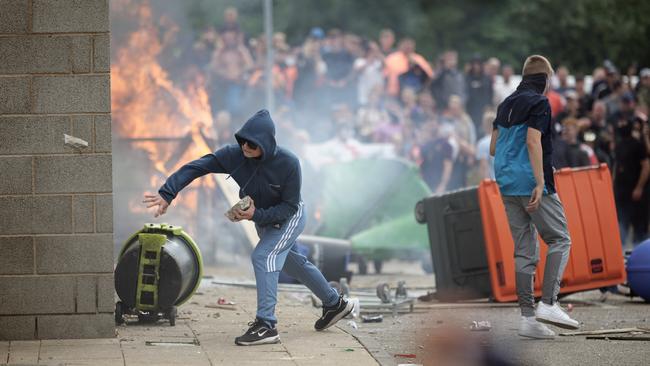
It’s not that the British are racist. They’re not. After all, they’ve had an Asian prime minister, two black foreign secretaries and the frontrunner to succeed Rishi Sunak as Tory leader is an ethnically African woman. They’re happy for their society to be multiracial, but what they don’t want it to be is deconstructed into a patchwork of cultural enclaves.
This notion of culturalism is nuanced. The British like many aspects of cultural diversity. They wouldn’t want to lose that. But they don’t want their traditions trashed or their institutions threatened by migrants who reject integration. Exactly the same phenomenon is pervasive throughout Europe.
It’s not ultimately about race. It’s about culture. And nothing has incited this sense of anger more than the progressive left elites who salami-slice society into competing tribes defined by their perceived degrees of victimhood.
There’s a very sharp lesson here for Australia. We’ve done better than Britain in resisting demands to subdivide our country into victims and oppressors, and we do have a relatively united sense of our national values. But we have to keep working at it. Beware those among us who are striving to destroy that unity and atomise Australia: hate preachers in western Sydney, the Greens and so on.
Alexander Downer was foreign minister from 1996 to 2007 and high commissioner to the UK from 2014 to 2018.


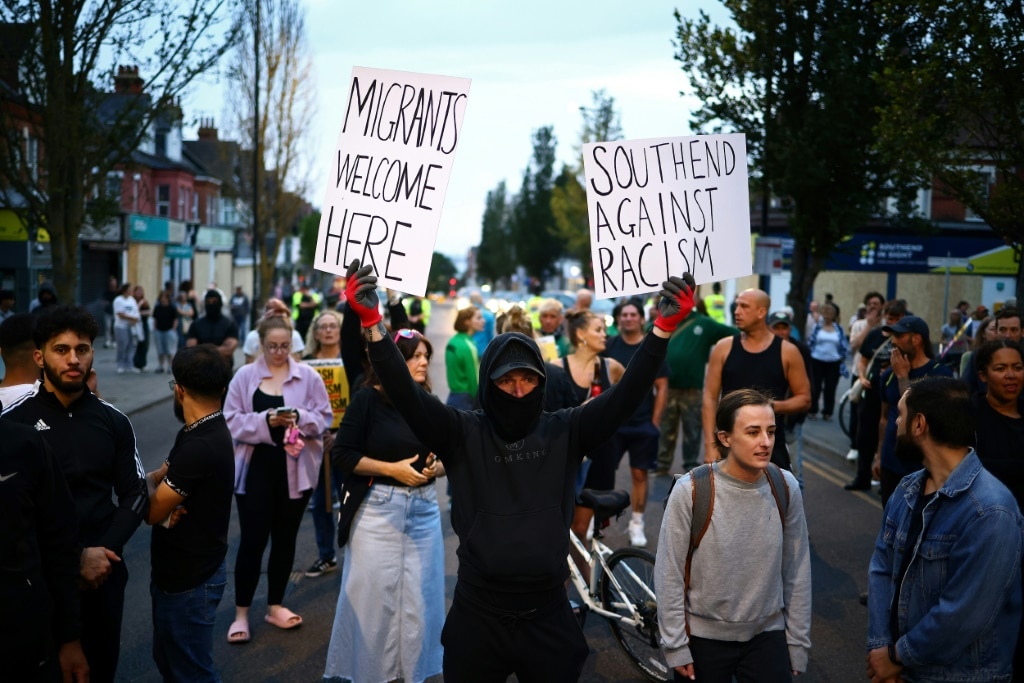
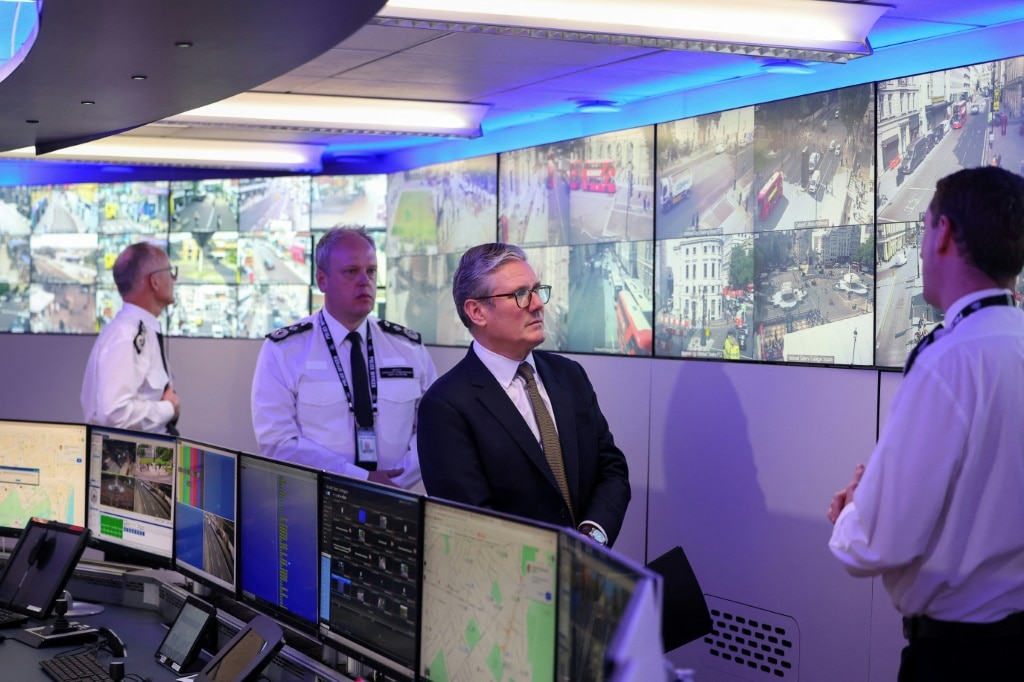
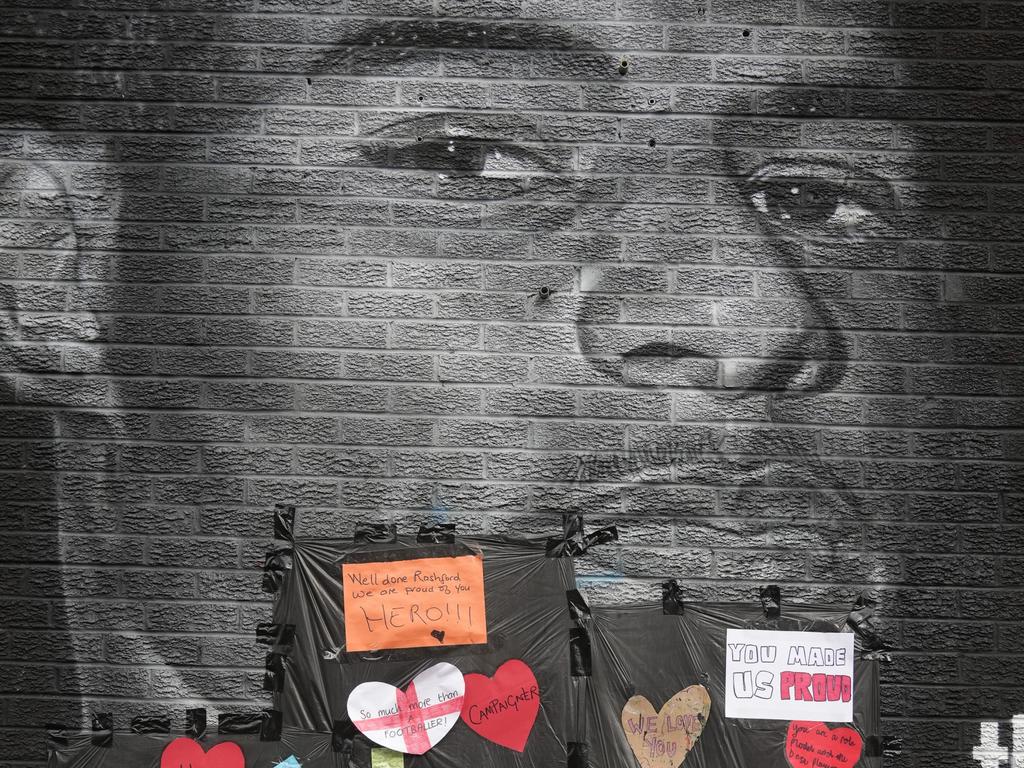


There are two harsh lessons for us all coming from the riots in Britain. Lesson No.1: manage immigration numbers carefully, balancing the need for migrants with the capacity of the country to absorb them. Lesson No.2: make sure you have an active program to integrate migrants into the mainstream of society.